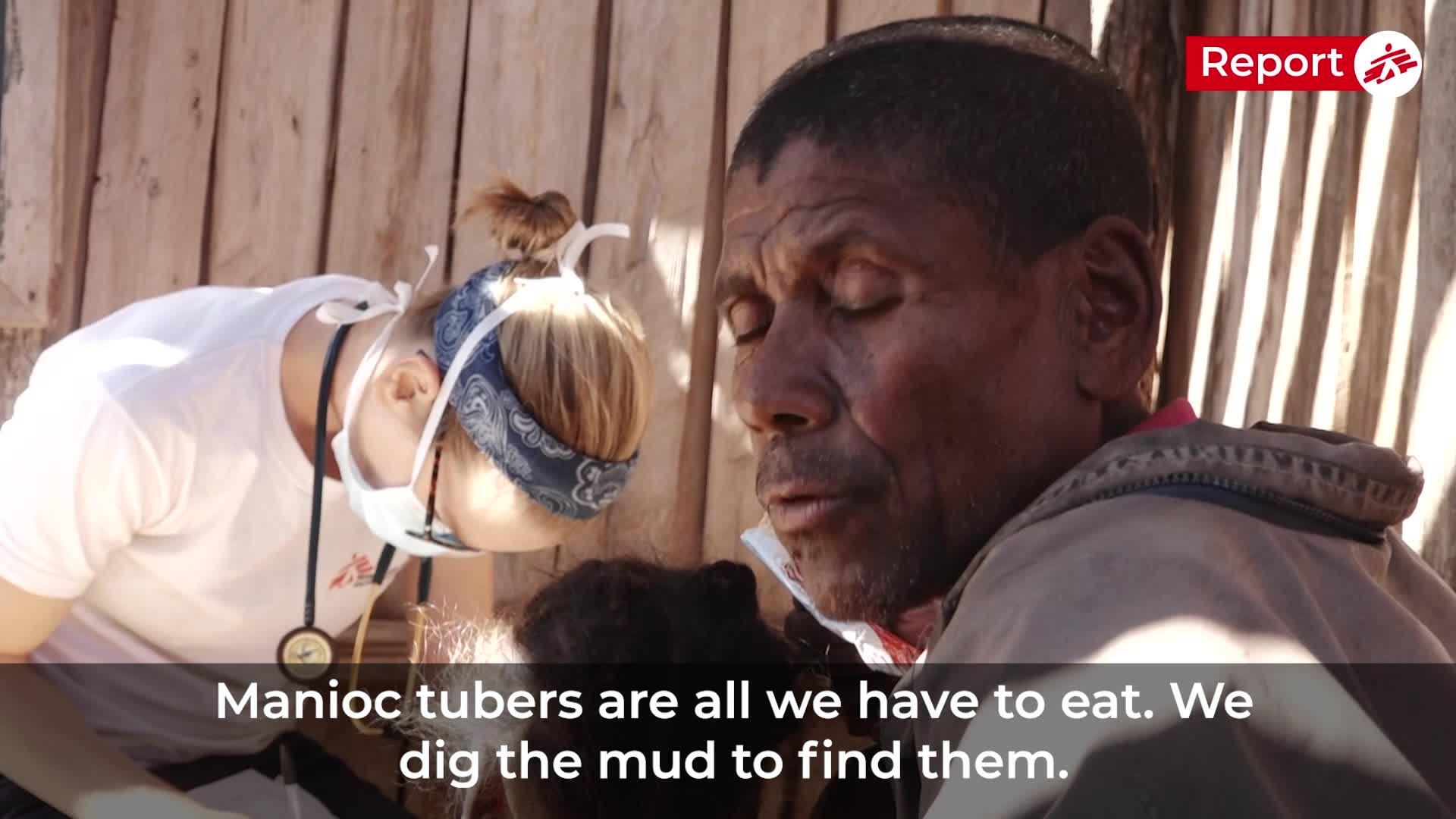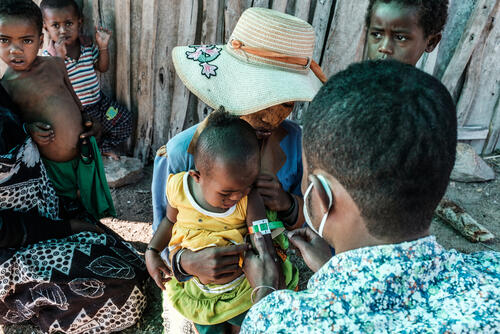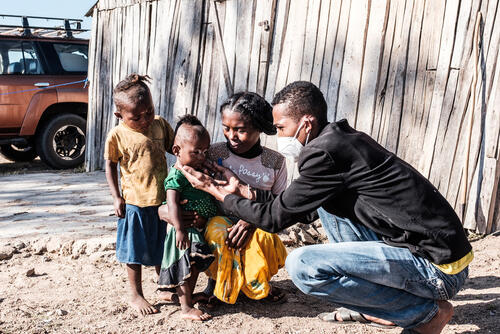People in southern Madagascar are experiencing an exceptionally acute food and nutrition crisis that is leaving thousands of children severely ill and pushing entire families into extreme poverty.
Since March 2021, Médecins Sans Frontières (MSF) emergency teams have been setting up more and more mobile clinics to deliver humanitarian and medical assistance in several districts across the region. They have now begun distributing food and recently opened an inpatient therapeutic feeding centre in the hospital in the town of Ambovombe.

Mobile clinic in Mahabo and Andranobe
After years of back-to-back droughts, the prospects for the harvest, which in normal times would now be well underway, are extremely poor – according to FEWS NET , food production is expected to fall up to 70 per cent below the last five-year average.
Although there may be variations between districts depending on whether they are in the highlands or on the arid plains, if there is an irrigation system in place or if aid is getting through to people, the situation continues to be catastrophic in the region where our teams work. There are also concerns for the months to come, as the crisis may deteriorate still further with the onset of the ‘lean season’ (the period between harvests) in October.
Food distributions
“We’re seeing malnourished children struggling to regain weight after weeks of treatment in our mobile clinics,” says Bérengère Guais, MSF’s head of emergency programmes, who has just been to Madagascar. “The medical care we provide, and the half-rations different organisations have been distributing, are not enough to reverse the trend in a setting where there is so little access to food.”
“A massive increase in emergency food assistance is an absolute priority,” says Guais.
As well as providing treatment for malnutrition and its medical complications, in June we began distributing food rations to the families of malnourished patients to help restore their access to food. One ration contains approximately 66 kilograms of rice, beans, oil and salt, which is enough to cover a family’s needs for one month. Our teams have already distributed 1,588 rations (around 104 tons of food), and this will be renewed for the next few months.
We’re seeing malnourished children struggling to regain weight after weeks of treatment in our mobile clinics...A massive increase in emergency food assistance is an absolute priority.Bérengère Guais, MSF’s head of emergency programmes
Mobile clinics
Mobile clinics delivering screening and treatment for acute malnutrition are set up in more than 15 sites in Anôsy and Androy regions (14 in Amboasary district and 3 in Ambovombe district). Our teams have treated 4,339 people suffering from moderate or severe acute malnutrition since they began providing medical assistance at the end of March.
The condition of malnourished children is exacerbated by a number of associated diseases, principally malaria – which affects 22% of our young patients – respiratory infections (18%) and diarrhoea (14%).
In the southwest of the island, other needs assessments and malnutrition-screening initiatives are being conducted, and will be extended to Androy and Atsimo-Andrefana regions within the next few days.
22 %
22%
18 %
18%
14 %
14%
Inpatient malnutrition centre opens in Ambovombe hospital
Working in partnership with the local authorities, six weeks ago, our teams launched the construction of an inpatient therapeutic feeding centre in the hospital in Ambovombe, to scale-up inpatient care for critically ill malnourished children.
Starting off with 40 beds – an extension is already underway to double this number – the centre is now open to patients.
On 21 June, the first three patients accompanied by their mothers were admitted and, by the end of the first week after opening, 28 children had already received treatment.

Improving access to water
A third of the malnourished children we treat in our mobile clinics in Amboasary district also suffer from either diarrhoea or parasitosis, which points to a lack of provision of clean water.
Since March, MSF has distributed 190 cubic metres of water, 2,872 jerry cans and 3,870 bars of soap. Our teams have repaired 11 hand pumps in existing installations, and 7 more will be back in service soon. Work on constructing 9 hand pump wells has begun, and should be completed in July and August. We are also looking into installing boreholes in 24 locations.



